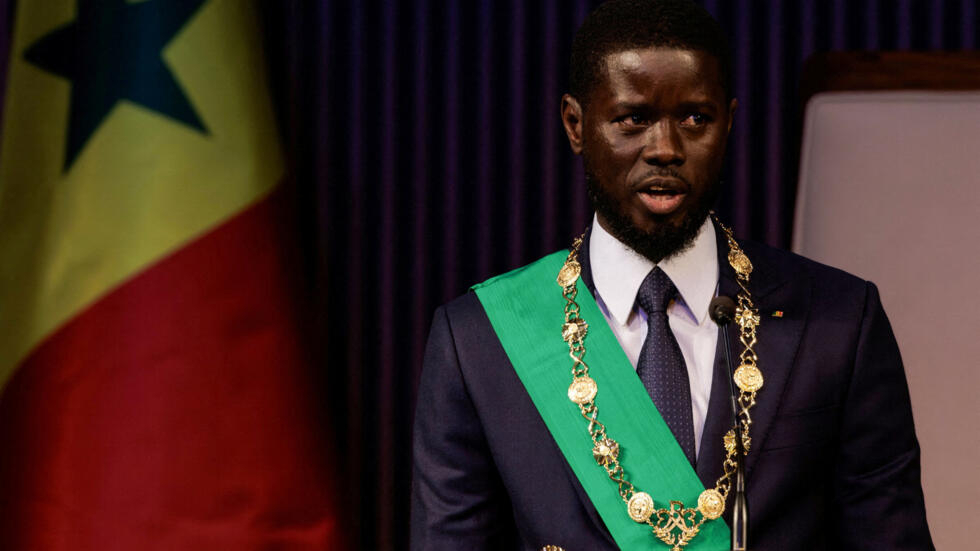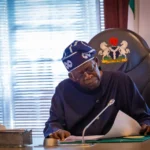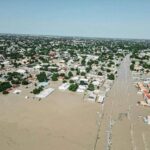Of the Senegalese presidential election, conducted on 24th March, 2024, Malin Bjork, the leader of the European Union Observer Mission remarked that it “took place in a calm environment and was well-organized”. On its conduct, the ECOWAS monitoring team reported that it was “smoothly” executed.
Little wonder, not less than seven Presidents and Heads of State, including Joe Biden and Emmanuel Macron, lustily congratulated the fifty-four year old winner of the presidential election, Bassirou Diamoye Faye. Little wonder too, that even before the preliminary results of the first round of the election were released on March 26th, at least seven candidates had already conceded to Faye, including Anta Babacar Ngom and Diathe Fall. After the first set of tallies showed that Faye had won the majority of the votes in the first round of the election, and which triggered widespread jubilation in Dakar, even Ahmadou Ba, the candidate of the former ruling Alliance for the Republic (APR) party conceded defeat.
But the election, which was adjudged by Observers and the Media as credible and placid, and which drew plaudits, was preceded with a tempest. Protests and demonstrations characterised the build-up to the conduct of the election by the National Autonomous Electoral Commission of Senegal. The popular WALF TV was shut down by the government.
Even more significant, the former incumbent, Macky Sall, of the APR, who had served two terms, had on 3rd February, postponed the conduct of the election, hitherto scheduled for 25th February, 2024, by fiat. This was, however, overturned by the Senegalese Constitutional Council. It then proceeded to order the conduct of the election “as soon as possible”. This order compelled the government to schedule the election for March 24th.
- Blueprint for charting a path for accountable governance and empowering Nigeria’s citizens
- Untold story of Abuja slum dwellers
On account of the uncertainty that dogged the conduct of the election, members of the international community were strident in urging the Senegalese government to conduct the election as soon as it was feasible. The French foreign ministry called on the Senegalese government “to end the uncertainty about the electoral calendar”. The U.S. State Department urged “all participants in the electoral process to engage peacefully to swiftly set a new date and the conditions for a timely, free and fair election”. ECOWAS implored the Senegalese government to “expedite the various processes to set a new date for the elections”.
If uncertainty governed the build-up to the election, not a few hurdles were erected on the path of the opposition Patriotes africains de Senegal pour travail l’ethique et la fraternite or African Patriots of Senegal for Work, Ethics and Fraternity (PASTEF), on which platform Faye contested the election. On 14th July, 2023, the original contestant for PASTEF, Ousmane Sonko, announced his candidature. On 31st July, 2023, however, PASTEF was dissolved by the Senegalese government. In the meantime, Sonko had previously been convicted on the trump up charges of “immoral behaviour”.
On 19th November, 2023, PASTEF designated Faye, its Secretary-General, to contest the election in place of Sonko. Faye too was imprisoned for criticising the conduct of Sonko’s alleged defamation trial. On 28th January, 2024, Sonko endorsed Faye as his replacement for the presidential election. Faye came out of incarceration a mere two weeks to the conduct of the election.
The presidential results, which were validated on 29th March, 2024 by Senegal’s Constitutional Court, showed that Bassirou Diomaye Faye of PASTEF scored 2,434,751 votes, representing 54.28 percent while Ahmadou Ba of the Alliance for the Republic (APR) scored 1,605,086 votes, representing 35.79 percent of the total votes cast in the election.
This election stands out for a number of reasons. These should instruct stakeholders and avid students of the electoral process. First, for the first time in Senegal’s history since it attained independence in 1960, an opposition candidate has won the presidential election in the first round.
Second, other contestants, including the formidable Ahmadou Ba, conceded defeat and congratulated the victor, Faye. Even Macky Sall, whose protege and candidate, Ba, was trounced in the election, hailed the triumph of Faye as “a victory for Senegalese democracy”.
Third, the election was largely driven and galvanised by youths who wanted a break from the strangle-hold of the APR party and Macky Sall.
Fourth, the Senegalese Autonomous Electoral Commission conducted the election with integrity and transparency, hence its wide acceptance by the Senegalese and praise by local and international Observers.
Fifth, the smooth and credible conduct of this election will help arrest the democratic reversal in the West African sub-region. The sub-region was fast acquiring the unseemly reputation and toga of a “coup belt”.
Sixth, it sends a message, loud and clear, that transparent elections can be conducted even in the most tumultuous of circumstances or environments.
Before Nigeria, with a population of 230 million and hundreds of ethnic nationalities, Senegal may seem an ant. It has a paltry population of 17.32 million and five ethnic groups, namely: Wolof, Pulaar, Serer, Diola and Mandingo. But Senegal has acquited itself excellently in the conduct of this election. Will Nigeria, Africa’s chief sluggard, go to the ant, consider her ways and be wise?
Nick Dazang is a former director at the Independent National Electoral Commission (INEC).

 Join Daily Trust WhatsApp Community For Quick Access To News and Happenings Around You.
Join Daily Trust WhatsApp Community For Quick Access To News and Happenings Around You.


